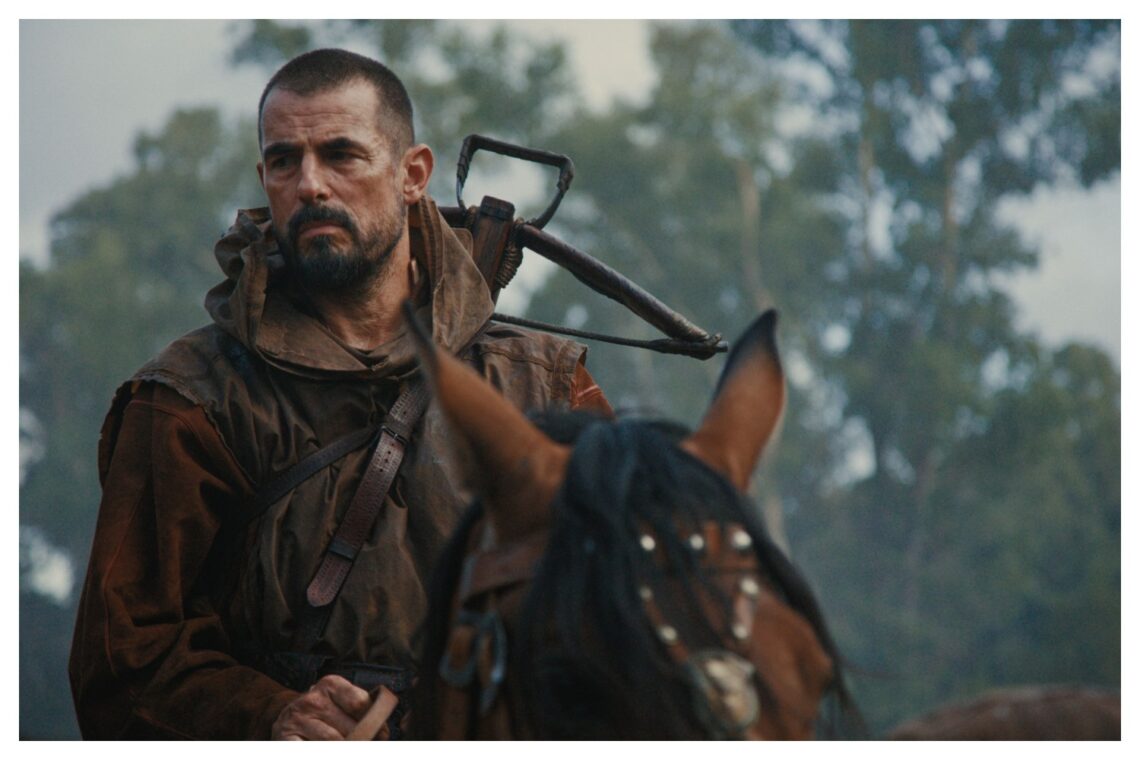Claes Bang embraces a classic in ‘William Tell’
Rediscovering an age-old legend
In the timeless tale of William Tell, directed by Nick Hamm, Claes Bang steps into the legendary shoes of the Swiss folk hero, famously tasked with shooting an apple off his son’s head. This daunting moment is not just a test of skill but a riveting scene loaded with political and personal tension.
“How do you get someone to say yes to that?” muses Bang, known for his roles in ‘The Square’ and ‘The Northman’. The actor delved deep into Tell’s psyche, a man scarred by war and weary of conflict. This weariness is shattered when Tell is thrust back into a turmoil where his extraordinary archery skills are put to the ultimate test.
The psychology of a hero
“What drives a man to attempt such a feat?” Bang explores this pivotal moment where bravery meets insanity. Tell’s unwavering confidence in his ability clashes with the horrifying reality of risking his child’s life. This psychological complexity captured by Bang lends the character an air of suspense and humanity.
Nick Hamm, known for his work on ‘The Journey’ and ‘Driven’, was drawn to the iconic apple shot scene. For Hamm, this moment embodies the essence of the film—a gritty act of defiance against tyranny rather than the romanticized version of a man with a feather in his cap.
Revamping a classic
H2: A modern take on Schiller’s play
H3: Breathing new life into a historical figure
Writing the script, Hamm revisited Friedrich Schiller’s 1804 play, aiming to infuse it with new energy while respecting its roots. He challenged traditional portrayals, particularly the image of Tell’s son as a helpless child. “A grown man putting an apple on a baby’s head? It’s barbaric!” he asserts. Instead, Hamm portrays an adolescent boy who places immense trust in his father’s abilities, adding a new layer of depth and realism to the tale.
Claes Bang concurs: “His son knows even better than Tell that he can actually do it. He’s seen it hundreds of times. But when it’s about to happen, the tension is palpable.” This portrayal not only modernizes the relationship but also emphasizes the trust and courage shared between father and son.
H2: A European narrative with contemporary relevance
Set in 1307, where Tell stands against Austrian oppressors, Hamm views his film as an emblematic European story. Produced by Free Turn Films and Tempo Productions and released by Beta, the film prides itself on its authentic cultural portrayal.
“In Europe, we tell our own stories. We don’t just mimic American cinema. Rarely do we get to dissect a story so thoroughly European and complex,” reflects Hamm. Tell’s hesitant heroism makes him a fitting figure for contemporary audiences, contrasting sharply with the often superficial characters of modern action films.
Exploring moral and political complexity
H2: The art of meaningful cinema
Hamm emphasizes the European penchant for morally and politically complex narratives. “Most action films are vapid. They’re entertaining, but lack depth. I want my films to educate, to present moral dilemmas and uplift politically,” he says. This ethos shines through in William Tell, a film that challenges viewers to reflect on the nature of heroism and resistance.
For Bang, the film’s themes resonate deeply. “You’re put in a situation where you must choose—succumb to aggression or risk a loved one’s life. This central dilemma is universally relatable.” The film’s multifaceted characters, especially Tell, embody these struggles, making the narrative more relatable and grounded in human experience.
Rewriting the role of women
Hamm took particular care in rewriting the female characters, often overlooked in Schiller’s play. Characters like Tell’s wife, portrayed by Golshifteh Farahani, are given their own battles and epiphanies, transforming them from passive figures into dynamic sources of strength and influence within the story.
“Every single character in this movie changes,” Hamm notes. Schiller’s nuanced character development is maintained, but the female characters now hold significant power and influence, reflecting modern sensibilities.
Looking beyond ‘William Tell’
H2: Future possibilities
Hamm hints at the potential for a sequel. “We have every intention of continuing Tell’s story. In a world that’s changing, he keeps his core value, bringing people together in a mixture of celebration and tragedy.” This ongoing saga promises to delve deeper into Tell’s world, expanding on his impact and legacy.
Claes Bang emphasizes Tell’s flawed heroism. “He’s not morally perfect. He’s relatable—someone who might do something extreme under pressure. It’s an existential story that transcends its Swiss roots.”
Through bang’s portrayal and Hamm’s direction, William Tell becomes a rich exploration of political liberty and human complexity. Enjoyed this journey into William Tell? Share your thoughts on our social channels and stay updated with the latest film releases by following us!

 Italian
Italian







